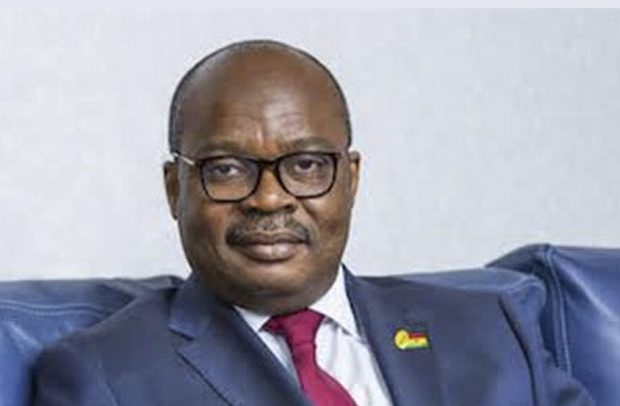
The first, he said was the upward adjustment of the minimum capital of banks to “a respectable level.”
Beyond recapitalisation, Mr Andani said he also expected Dr Addison to use policy to encourage financial institutions to digitise more.
Additionally, the new governor should leverage his position to help bring clarity to “the increasingly blurred lines between telecommunication companies (telecoms) and banks” in the provision of financial services, he told the Graphic Business and the Africa Report in Accra.
As the economy grows and bank customers become increasingly sophisticated, Mr Andani said, base capitals, digitisation of banking services and the role of telecoms in banking would become the fulcrum around which the business of banking and growth in the sector would revolve.
This, he said required Dr Addison, who is barely a month old on the seat, to help prioritise them in the discharge of his duties.
While an increase in the stated capital of banks is needed to help improve liquidity in the banking space, Mr Andani said the clarity on the role of banks and telecoms in banking services will help ward off the glaring risk that the strong growth in mobile money services pose to the banking industry and the economy as a whole.
“I think that is where there is a major risk coming up,” he said, in reference to telecoms offering services similar to banks.
“Because, going into the future, (we need to know) how much electronic money (e-money) do we have in there, what is the impact of e-money on the broader economy, how do you regulate e-money and all of that. That is a totally new area we need to grapple with very quickly,” he added.
Mobile money debacle
Mobile money has, over the past six years become the toast of telecoms and the general public after its debut in 2010.
Currently four of the telecoms offer the service in conjunction with banks after MTN Ghana pioneered it.
Inspired by the strong growth in mobile telephony in the country, the service currently allows some 17 million users to hold, deposit and send money to colleague users, similar to what pertains in the banking sector.
Patronage of the service has also been boosted by its flexibility, which means that it can reach the nooks and cranny of the country, where banking services were virtually unheard of. As of October last year, some 800,000 merchants were offering mobile money services nation-wide, making the spread of mobile money services far more than that of banks, rural and community banks, savings and loans, microfinance and other financial institutions put together.
Between 2011 and October, last year, the value of transactions on mobile money rose from GH¢400 million to GH¢35 billion, bringing to the fore the amount of money that circulates around the mobile phone.
Although the development is necessary in the push for financial intermediation, the President of the Bankers’ Association said the mobile money business in its current state smacked of telecoms doubling into a space they do not have the expertise and legal go ahead to operate in.
Selling mediums
As providers of voice and data telephone services, Mr Andani said telecoms needed to remain providers of mediums to banks to provide financial services to the public rather than doubling as providers of such services through their mobile money services.
“Banking is medium; the medium to which you deliver financial services. If it was just sitting under the tree with a safe box and a table, that is what it was. Then we had high streets with more appropriate buildings and the fact that you own a building at the high street that is suitable for banking did not make you a bank, did it,” he asked.
“A bank with a license and the right infrastructure and people came and rented the space to do banking. And we have moved; from under the tree to high street banking to the humble Automated Teller Machine (ATM).
“Now, we have reached a space where space is eater, which is created by telecoms. So, why can’t the regulator let banks rent that space and write financial services,” he asked.
In its current state, Mr Andani said it was as though the situation is being reversed, such that “because telecoms have that space, they can write financial services and I do not see the argument different from somebody having a suitable premise on the high street and saying that he/she will use it to run a bank.”
As a result, he said the industry will be comforted if Dr Addison could help banks and the telecoms to understand what the digital space is, who owns it, who uses it and for what purpose.
“We need to get to that but at the moment there is a grey area. Suddenly, people who own that space are now providing financial services,” he said.
Asked he wanted telecoms to be barred from offering mobile money services, Mr Andani said “I want banks to do banking.”
“I do not want banks to run telecoms and I do not want telecoms to run banks,” he said, admitting that unless the situation changes, a time will come when banks and telecoms will be forced to buy into one other to help sustain the growth.
“The question is; will banks buy telecoms or will telecoms buy banks. The jury is out there. One of them must happen or two of them will happen.”
“Some telecoms will be strong enough to buy banks and some telecoms will be strong enough to buy banks but then the regulators will have to say ‘what animal are we creating.” Read Full Story




















Facebook
Twitter
Pinterest
Instagram
Google+
YouTube
LinkedIn
RSS